Much like plays of time past, movies often contain extended dialogue from a singular character that rises above the film, reaching a level of transcendence rarely realized. Be it out of love, hate, or from someplace in between the two, some speeches rise above the films they live in, reaching a high watermark of rhetoric, philosophy, and analysis. Some speeches, however, rise even further and become the best in movie history.
The greatest movie speeches manage to summarize the theme and plot of the movie while simultaneously surpassing the dialogue of the entire film. Be it monologues of misguided anarchy like in “Animal House,” or brief analyses that aptly summarize the eternal struggles of mankind like “Do the Right Thing,” all the best movie speeches upstage the characters, plot, and themes, resulting in profound meditations on existence itself. In this article, we will explore some of the best speeches in movie history. (For one-liners that became iconic, discover 50 of the most unforgettable movie lines.)
To compile a list of the best speeches in movie history, 24/7 Tempo consulted a range of film, entertainment, and lifestyle sites including Empire Online, American Rhetoric, and HighSnobiety. Next, we selected speeches that had the most cultural impact and/or delivered the most iconic moments. After that, we consulted sites like Rotten Tomatoes and IMDB.com to confirm aspects of each movie and the speeches therein.
Gladiator (2000)
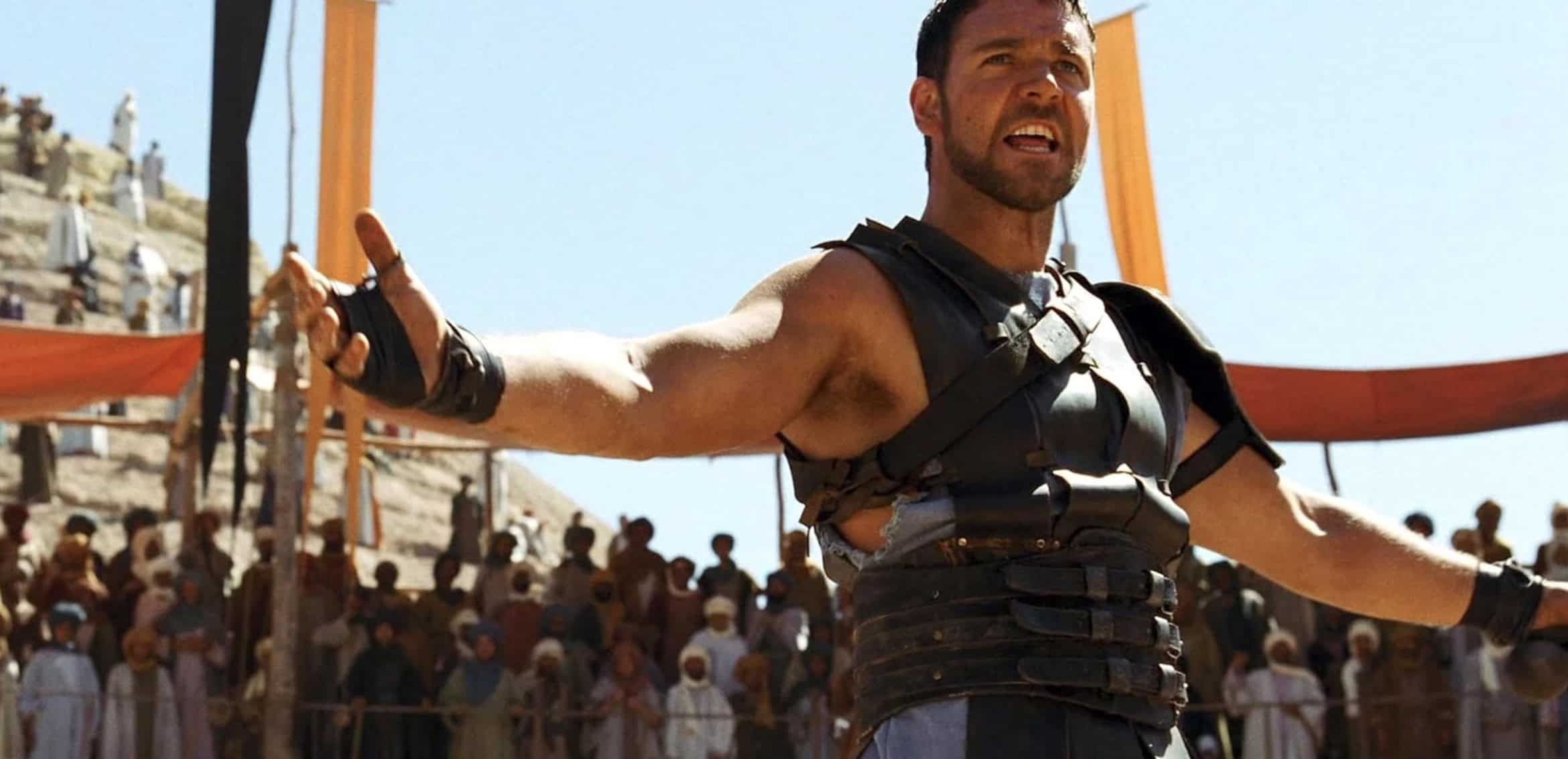
One of the best speeches in movie history comes from Ridley Scott’s Roman epic “Gladiator.” Though the main character Maximus gives an impressive speech to his battle-worn soldiers at the movie’s commencement, it fails to top the speech he utters during the movie’s climax. By this time, Maximus has been sold into slavery and bides his time competing in Gladiatorial games. His unparalleled success leads him closer to his nemesis, Emperor Commodus.
After Maximus wins the games in the Roman Coliseum, Commodus enters the ring to give credence to his performance. While Maximus dons a mask disguising his face, he pulls it off and reveals his true identity. In his speech, Maximus pays loyalty to the murdered former emperor and details the horror and destruction that Commodus’ regime administered against him. It’s one of the best movie speeches because it provides a satisfying conclusion to the hardship Maximus endured to reach this place and position. He’s willing to throw away his life in exchange for the chance to tell off the malevolent Emperor.
Independence Day (1996)
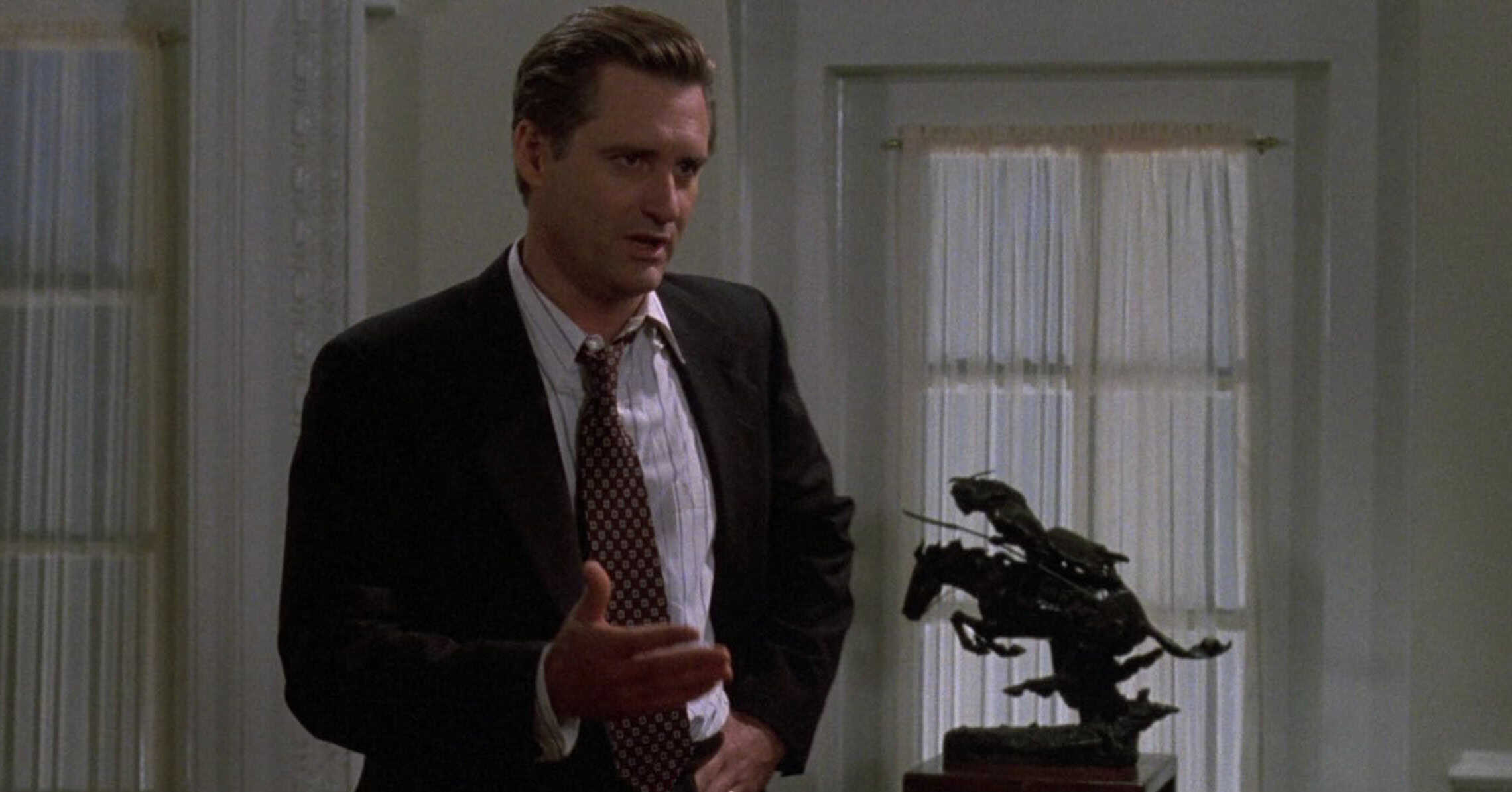
Another one of the best speeches in movie history comes from the sci-fi blockbuster “Independence Day.” In any other context, Bill Pullman’s speech as the US President might come off as patriotic propaganda or foreign policy jingoism. The aliens, however, have invaded and threaten not only the American way of life but the life of all human beings. To whip up the pilots, Pullman delivers a mighty monologue.
In the speech, he harkens back to the great fight the American colonies undertook to claim their independence from the British. From there, he connects the revolution to the battle the rag-tag group of pilots will fight against the invading aliens. He asks the people to put aside their petty differences and fight for the rights of all people to live. It helps that Pullman’s character will be flying a plane in the ensuing battle, but it doesn’t detract from the inspirational, mighty tone he takes when expressing human dignity in the face of unprecedented adversity.
Animal House (1978)
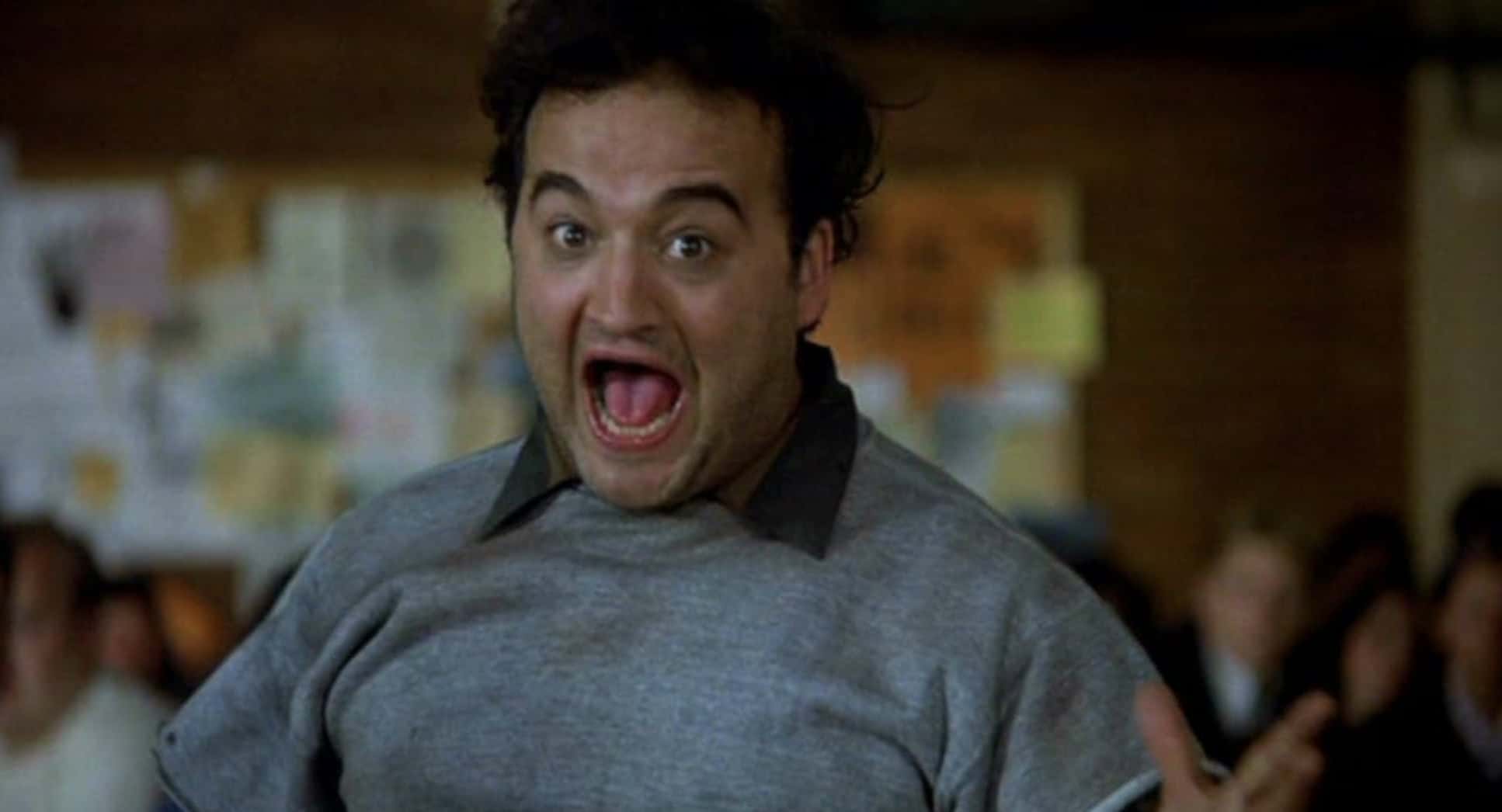
Another one of the best speeches in movie history comes by way of frat-boy humor in the comedic classic “Animal House.” By this time in the film, the animal house frat boys have alienated the other students at their college, sown destruction on campus, and earned the ire of their nemesis, Dean Wormer. Battle-worn, and morally defeated, the boys retire to their frat house to figure out what comes next. Amid this languor, John Belushi’s Bluto character makes an impassioned speech.
Though he’s probably drunk and surely deranged, this state of mind fails to stop Bluto from raising the spirits of his fellow frat boys. He fails to make the proper historical connections, but his emotion carries his words to a hair-raising level of anger and pride. Bluto calls upon his countrymen to not give up the fight against the school so easily, and after a few minutes of blustering and shouting, he whips up his compatriots into an inspirational frenzy. Though comedic, Bluto’s speech hits all the notes of a great monologue.
Miracle (2004)
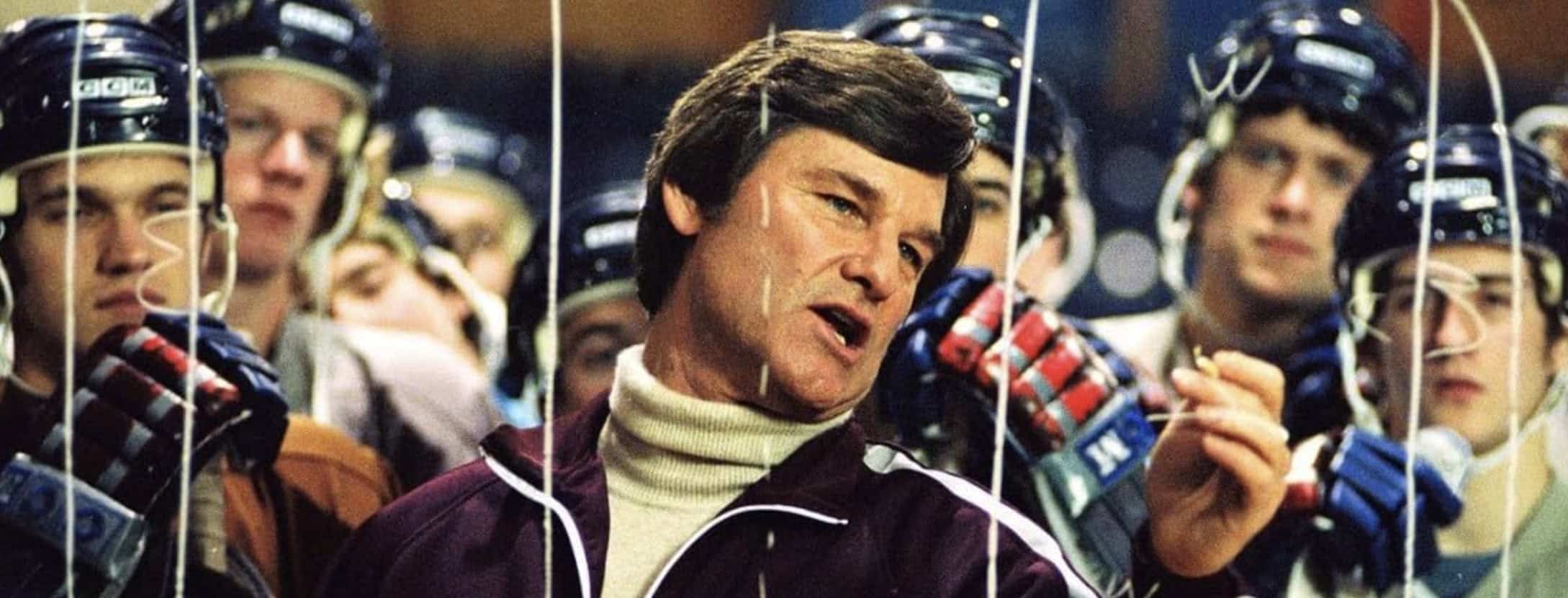
Another one of the best movie speeches in history comes from the sports film “Miracle.” Based on a real-life story, the movie details the heroic fight the US Olympic hockey team brought to their Russian rivals. Though the hot-headed American team suffered previous, if not humiliating, defeats, they stayed in the rankings long enough for an epic showdown against the Russian teams. Before the game, Kurt Russell as their coach Herb Brooks, enters the locker room and gives one of the best coach speeches ever.
What makes the speech so great is Russell’s lack of negativity. He eschews all doubt in his player’s minds as he illustrates the game as being a change for singular greatness. He tells them that they are the greatest hockey team in the world. It’s said with such conviction and sincerity, that you believe him. It’s a speech of triumph and rising above bad odds. Much like the players on the receiving end, it fills the audience with pride and inspiration as well.
Good Will Hunting (1997)
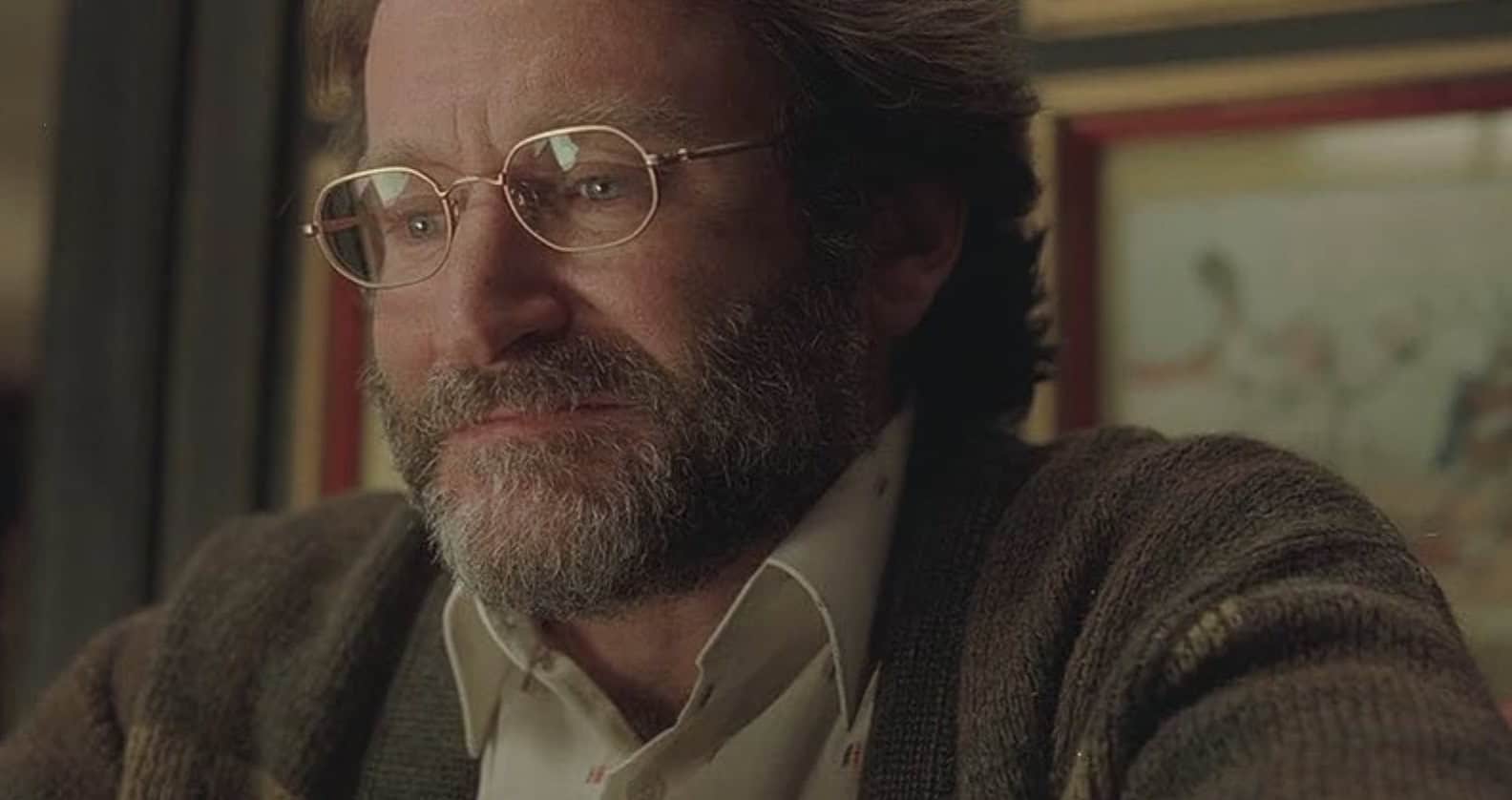
While there are multiple brief monologues in the Academy Award-winning “Good Will Hunting,” this speech is given by Robin Williams’ character to Matt Damon’s character, Will Hunting. After being discovered solving complex equations in a Harvard hallway, janitor Will Hunting becomes the apprentice of psychologist Sean Maguire. Though they come to intellectual blows, and Hunting embarrasses Maguire, Maguire sits him down on a park bench and lays it all out.
Hunting is brash and arrogant, but Maguire picks up on his latent insecurity. After Hunting rips apart Maguire’s life by analyzing a painting in his office, Maguire explains to Hunting that he may know endless information, but it’s all learned from books. He illustrates that Hunting may be a genius, but he’s also a scared kid, afraid of knowing his true, inner self. It’s a great movie speech because it captures the duality of wisdom gained from books and wisdom gained from hardship, adversity, and life experiences.
Good Night, And Good Luck (2005)
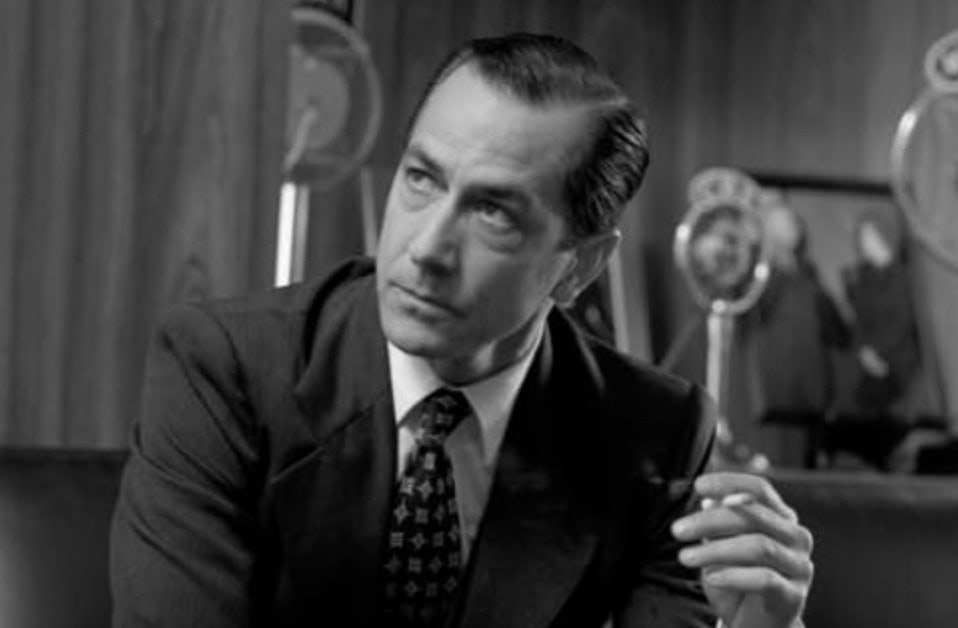
Another one of the greatest movie speeches in history comes from the biopic “Good Night, and Good Luck.” The film details the real-life witchhunt undertaken by Senator Joseph McCarthy to root out Communists from American society. In response, CBS News correspondent Edward R. Murrow undertakes a campaign of his own to point out the social atrocities and disturbing precedents McCarthy set with his campaign. The speech comes from Murrow’s character speaking to a dinner party full of high-profile guests.
Though he works for the media, Murrow’s speech lays out a blistering attack against the media apparatus of the United States. He illustrates how the media serves not the public, but the goals of the powers that be. Then he explains how it distracts, deludes, and destroys our sense of critical thinking. Murrow decries the United States’ allergy to facing any uncomfortable truths. From there, he signs off his soliloquy with the parting words, “Good Night, and Good Luck.” What makes this speech so great is it’s directly lifted from the real-life speech Edward R. Murrow gave. It’s poised, prophetic, and highlights the heroism required to stand up to the status quo. (For other historic speeches, discover the best real-life speeches portrayed in film and television.)
The Shawshank Redemption (1994)
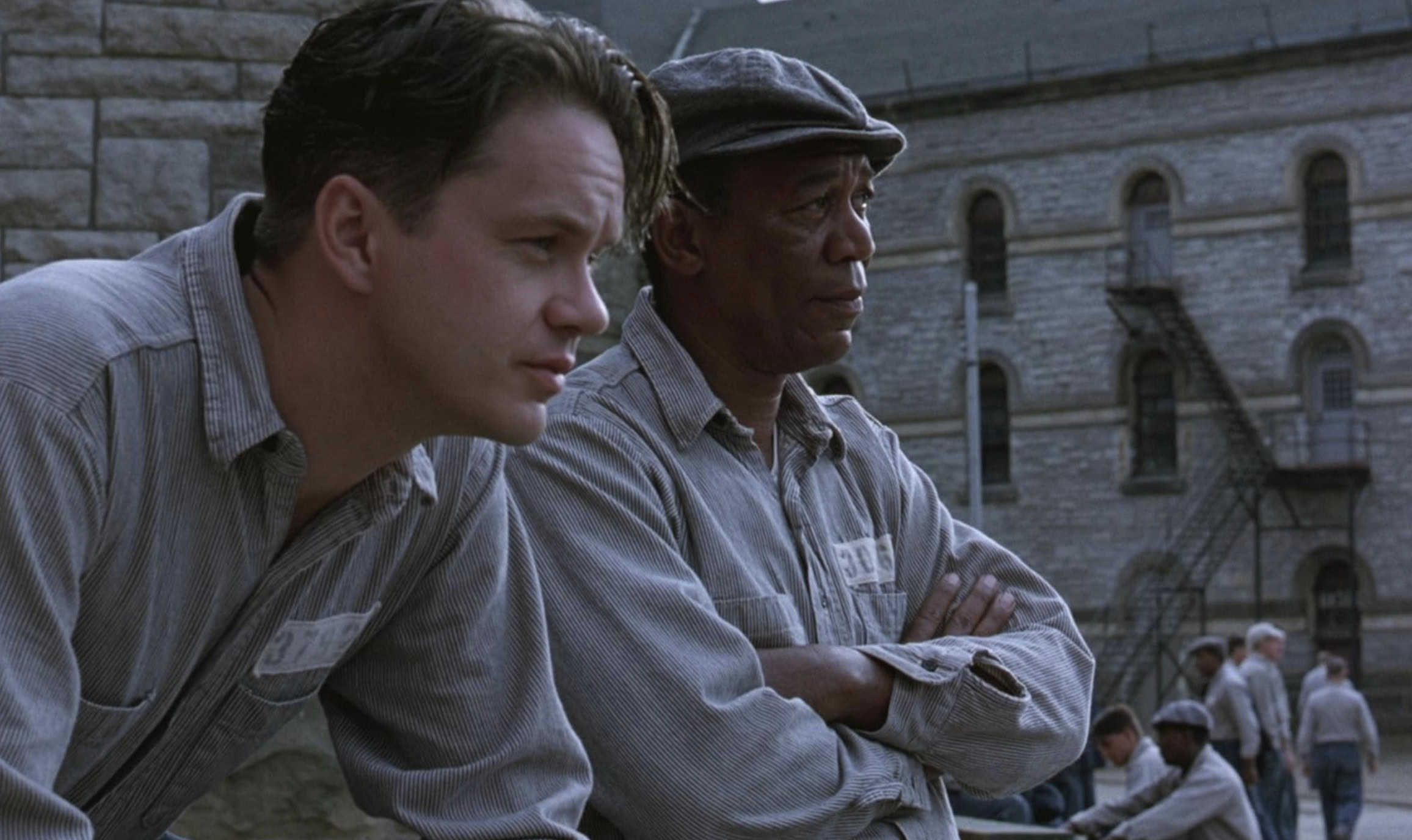
Another one of the greatest speeches in movie history comes from “The Shawshank Redemption.” In the film, Andy Dufresne passes the time in prison learning how to get along and come away without losing his life. Along the way, he befriends Red, a long-time prisoner with enough wisdom to go around. In a quiet moment before the film’s climax, the pair sit on a rooftop and discuss what life might be like beyond the confines of the prison’s walls.
Not yet fully resigned to prison living, Dufresne fantasizes about what life could be like after he gets out. He details his plan to move to the Pacific coast of Mexico and open a small hotel, living a quiet life, unencumbered by the actions that put him in prison in the first place. Red, however, has been in prison so long that it is all he knows, and he fears what life would be like if given his freedom. Furthermore, he shoots down Dufresne’s plans as pipe dreams. Besides giving us the iconic line “Get busy living or get busy dying” the speech captures the duality of experience, the irreconcilable yet inexorably linked state of hope and state of resignation.
American Psycho (2000)
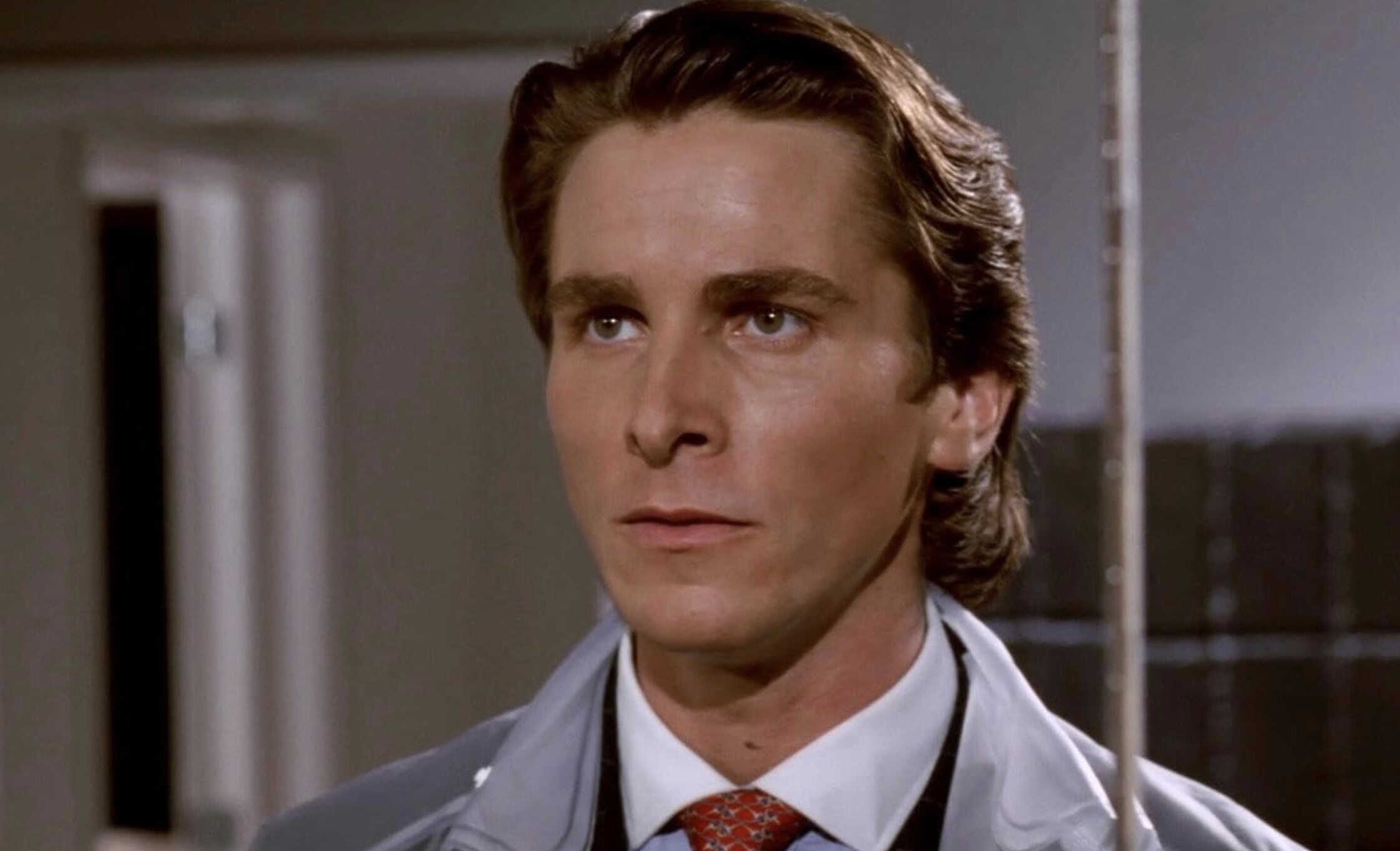
Another one of the greatest speeches in movie history comes from the disturbing, surreal “American Psycho.” Based on the novel by Bret Easton Ellis, the film follows hot-shot investment banker Patrick Bateman. Though Bateman lives a life most fantasize about, his monologue at the beginning of the movie provides insight into the type of person, or lack thereof, Bateman sees himself as.
Though the speech starts as something out of a self-help book, detailing Bateman’s morning routine as camera shots illustrate it, by the end, it ventures into harrowing territory. It details name-brand products, careful grooming tactics, and discipline exercises, but gives insight to Bateman’s startingly psychopathic nature. As he says, “There is an idea of a Patrick Bateman, some kind of abstraction, but there is no real me, only an entity, something illusory. And though I can hide my cold gaze and you can shake my hand and feel flesh gripping yours, and maybe you can even sense our lifestyles are probably comparable, I simply am not there.” It’s frightening and bone-chilling, to be sure, but it gives incredible insight into the inner voice of a deeply disturbed and violent psychopath.
Star Wars: The Empire Strikes Back (1980)
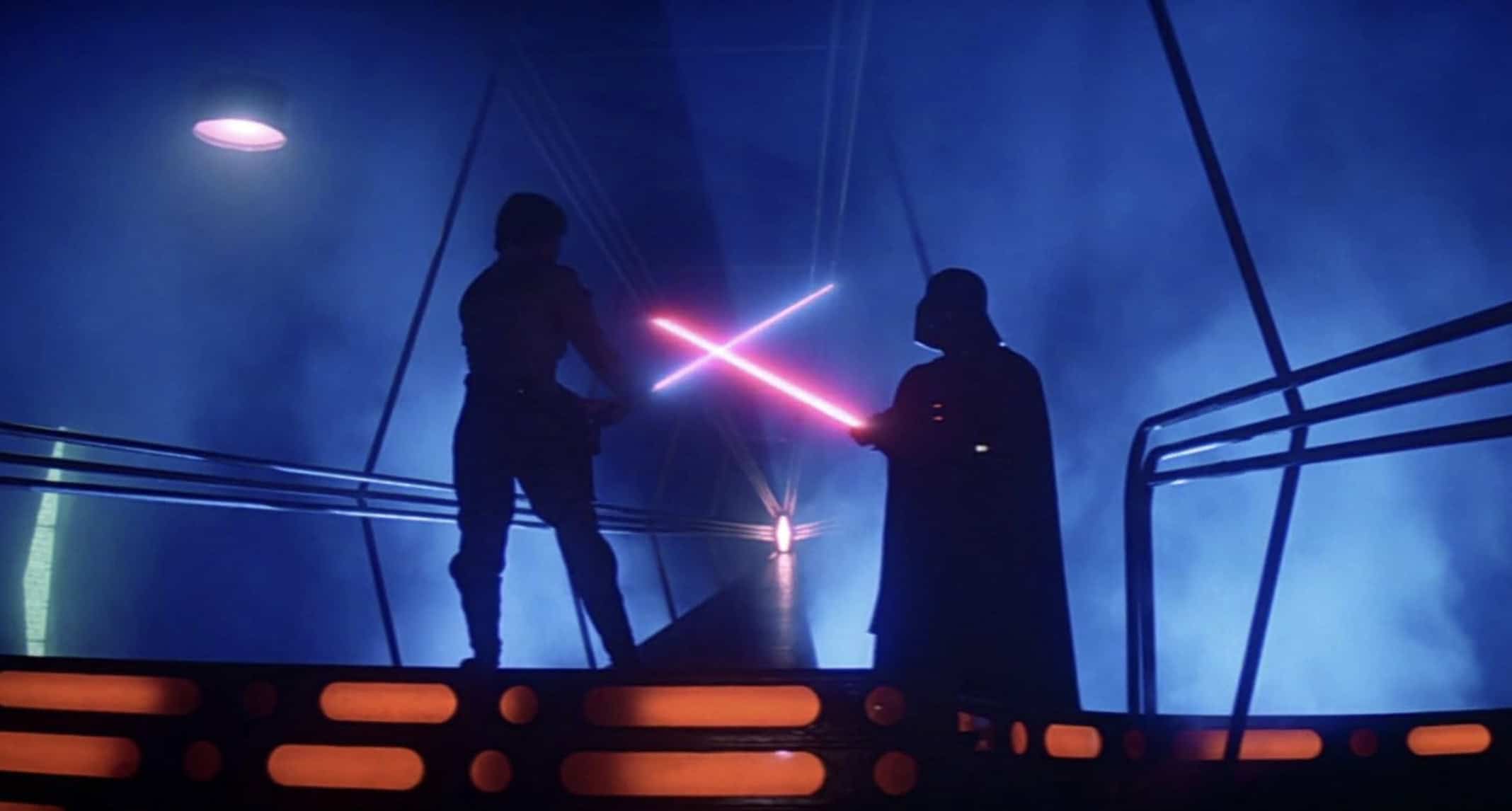
Another one of the greatest speeches in movie history comes from the incredibly successful sequel to the original Star Wars, “The Empire Strikes Back.” By this time, protagonist Luke Skywalker has gained his Jedi powers and uses them to fight against the growing power of the Empire and its leader, Darth Vader. The speech occurs once Luke confronts Darth Vader, and they engage in an all-out battle for life and death.
However, Vader is more powerful than Skywalker, and once he gets him on the ground, he delivers a crushing speech. In it, he trumps the merits of the dark side of the Jedi force, illustrating its unstoppable power and how little Skywalker can do against it. Then, in an iconic subverting of expectations, Vader explains to Skywalker that he is his father. It’s a crushing blow to Luke, but it remains one of the most iconic lines in history and finds support in Vader’s entire speech.
The Great Dictator (1940)
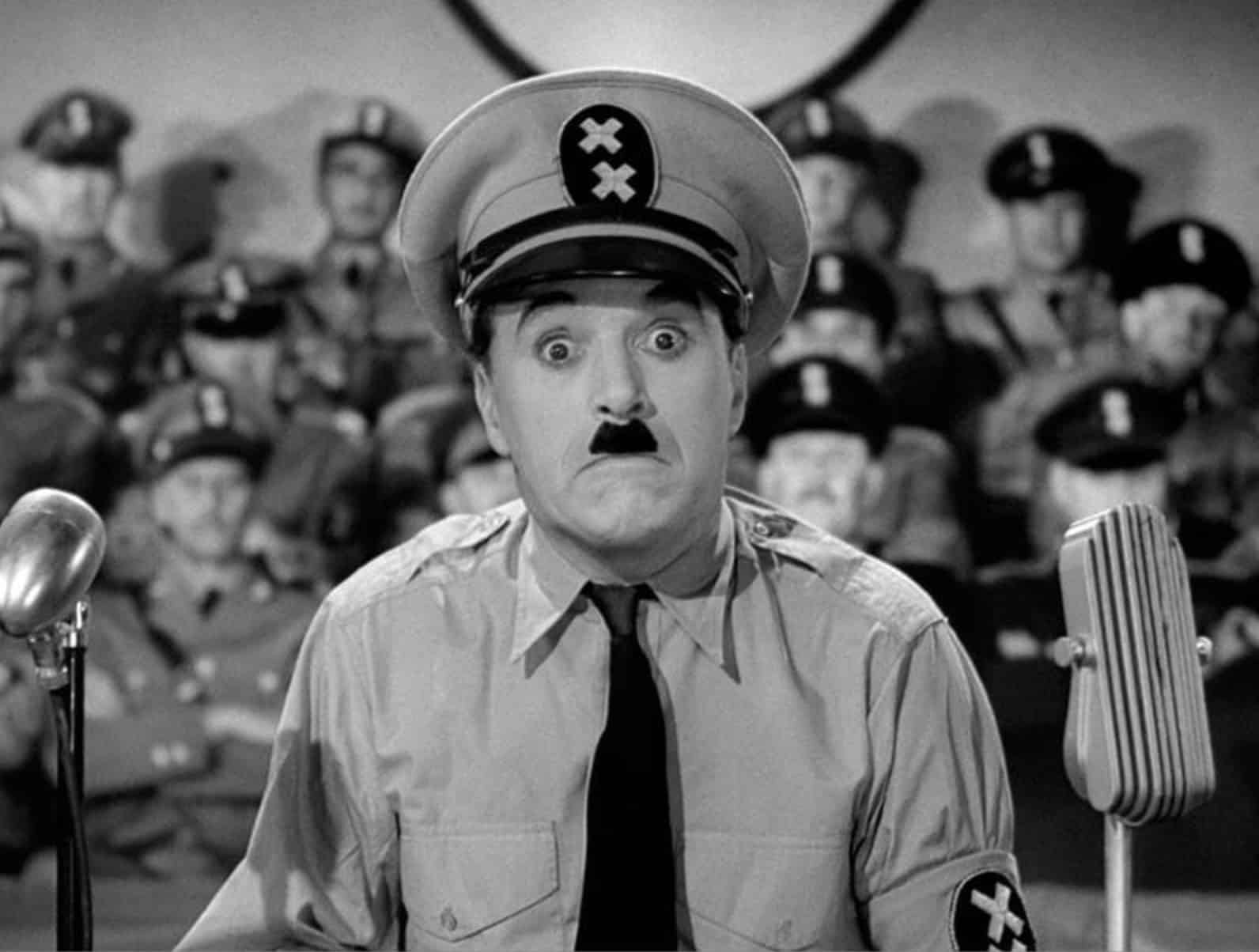
Another one of the greatest speeches in movie history comes by way of Charlie Chaplin’s “The Great Dictator.” Made in response to the looming destruction of World War II, Chaplin plays a poor Jewish barber disguised as a bombastic dictator. When forced to speak to the people in a Nuremberg-style rally, Chaplin subverts his audience’s expectations with his impassioned, heartfelt speech.
In the speech, Chaplin’s character lets down his guard and lets his humanity shine through. Instead of calling for division, he calls for peace, urging people to live by each other’s happiness and not their misery. He decries the widespread use of machines and how they transform human feeling into cold, often bitter, calculation. It’s one of the greatest speeches in movie history because it uses explosive rhetoric from a dictatorial pulpit to fight against extremism. It asks the audience to see their fellow people as just that, people, instead of letting division sow disaster and impede progress.
It’s A Wonderful Life (1946)
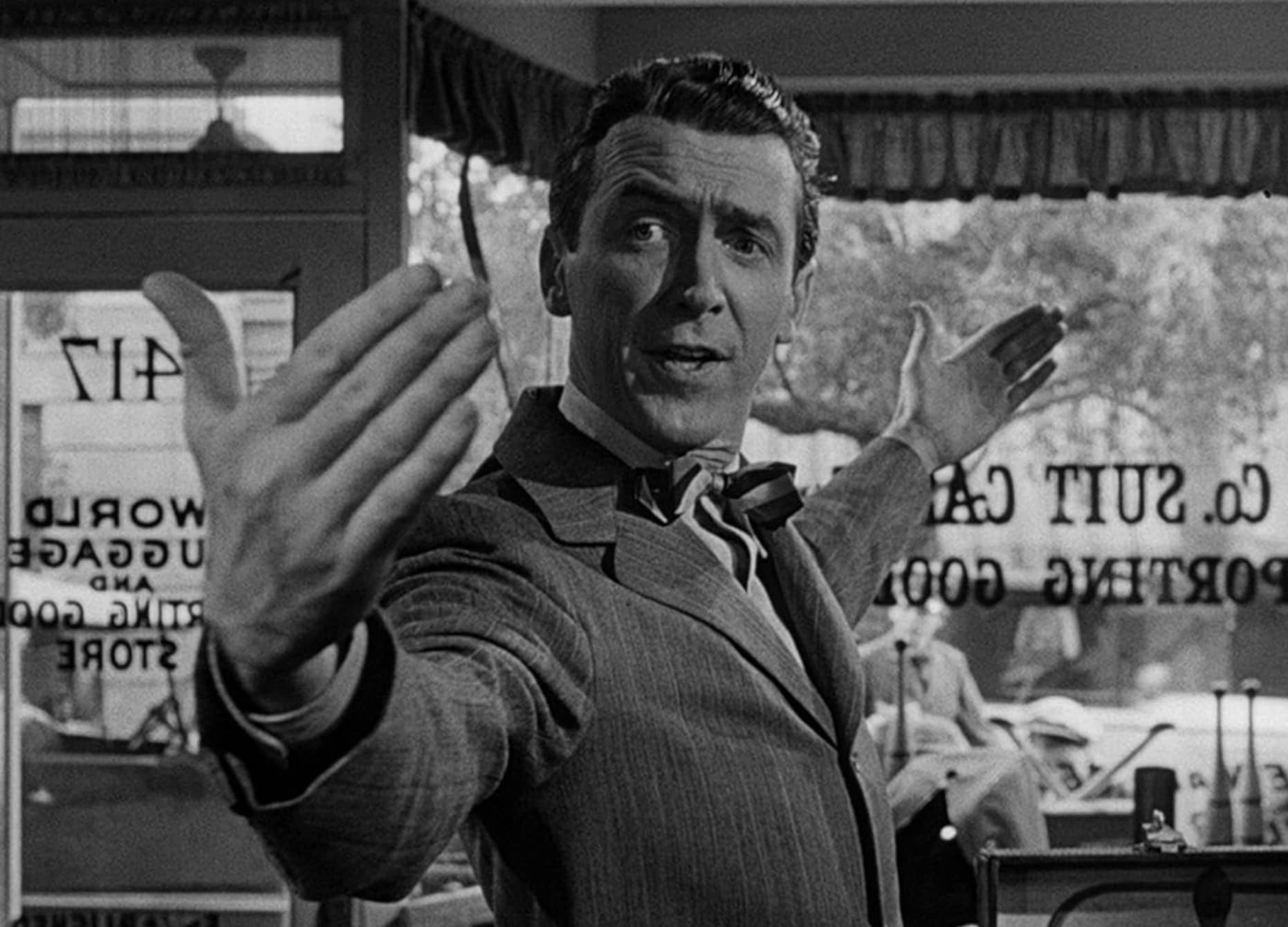
Another one of the greatest speeches in movie history comes from the Christmas classic, “It’s A Wonderful Life.” In the film, protagonist George Bailey seems at his wit’s end. Facing increasingly insurmountable problems, he decides to jump off a bridge and end his life. In the last moment, angels save Bailey and show him what life in his town would be like without all his years of good influence.
The speech occurs during a flashback, as Bailey accompanies his future wife Mary home from a school dance. It’s a heartfelt and romantic scene, further bolstered by Bailey’s outpouring of love for Mary. After asking her what she wishes for, Bailey testifies to his commitment to their love. He asks, “You want the moon? Just say the word and I’ll throw a lasso around it and pull it down. I’ll give you the moon.” It’s a beautiful, romantic speech, and shows how even in the darkest life, joyous and loving memories sit, waiting to be remembered and cherished.
Training Day (2001)
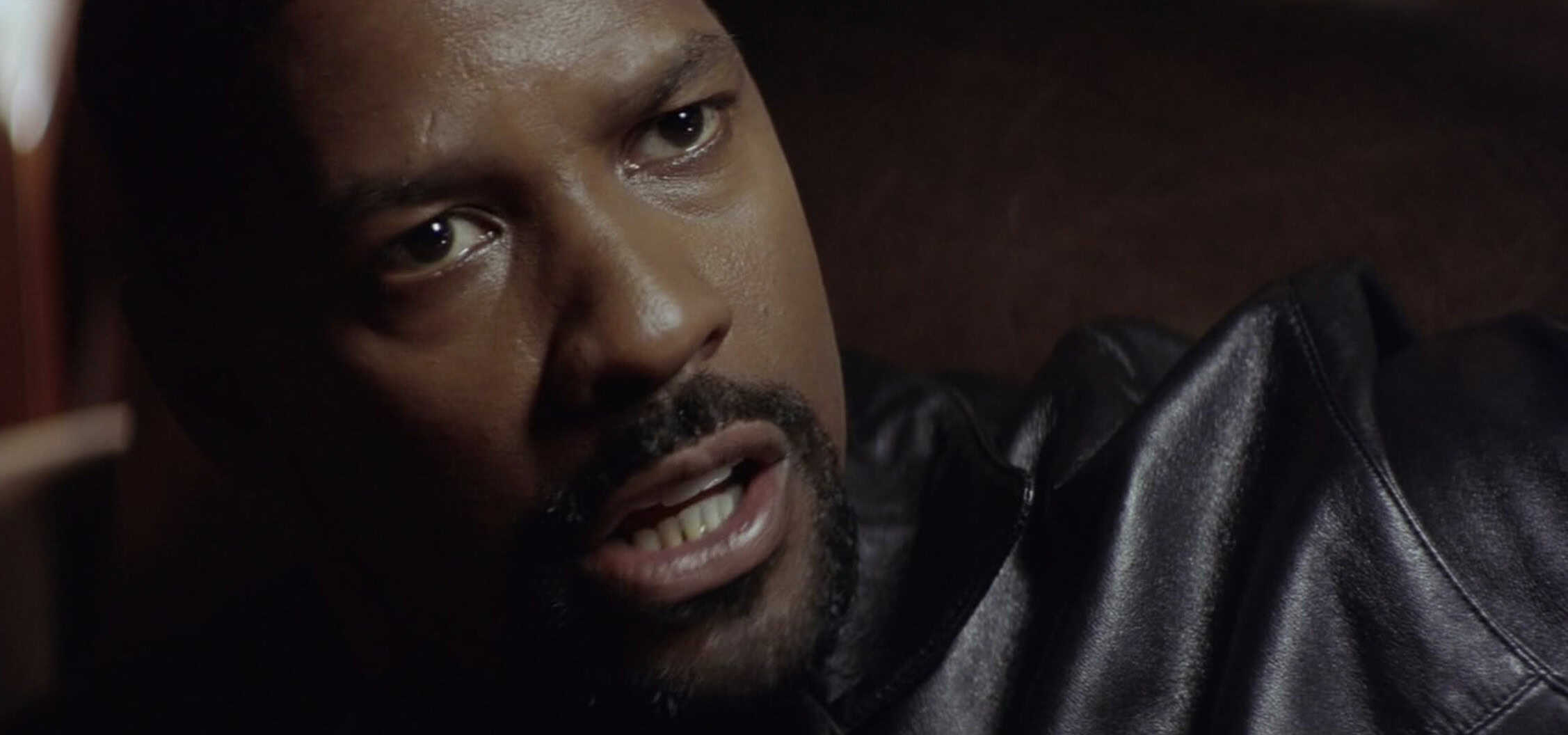
Another one of the best speeches in movie history comes from the climax of the award-winning cop drama, “Training Day.” In the film, police officer Jake Hoyt feels the heat after being assigned to the LAPD’s narcotics unit. His new partner, Detective Alonzo Harris, doesn’t make it easy. Instead, Harris leads Hoyt through the dangerous, unpredictable world of the Los Angeles streets. In the process, Hoyt takes notice of the unconventional, if not corrupt, way Harris conducts his police work.
The speech occurs in the film’s climax, after Hoyt survives near-certain murder, and joins with the project’s community to betray the increasingly out-of-control Harris. When faced with the community’s wrath, Harris unleashes an incredible speech of pride, anger, resentment, and deluded strength. Besides the iconic line, “King Kong ain’t got shit on me!” the speech illustrates the sober arrival of consequence, the pity of impotent rage, and provides satisfying closure to Harris’ many crimes. It’s a powerful monologue of a man meeting his well-deserved comeuppance.
Goodfellas (1990)
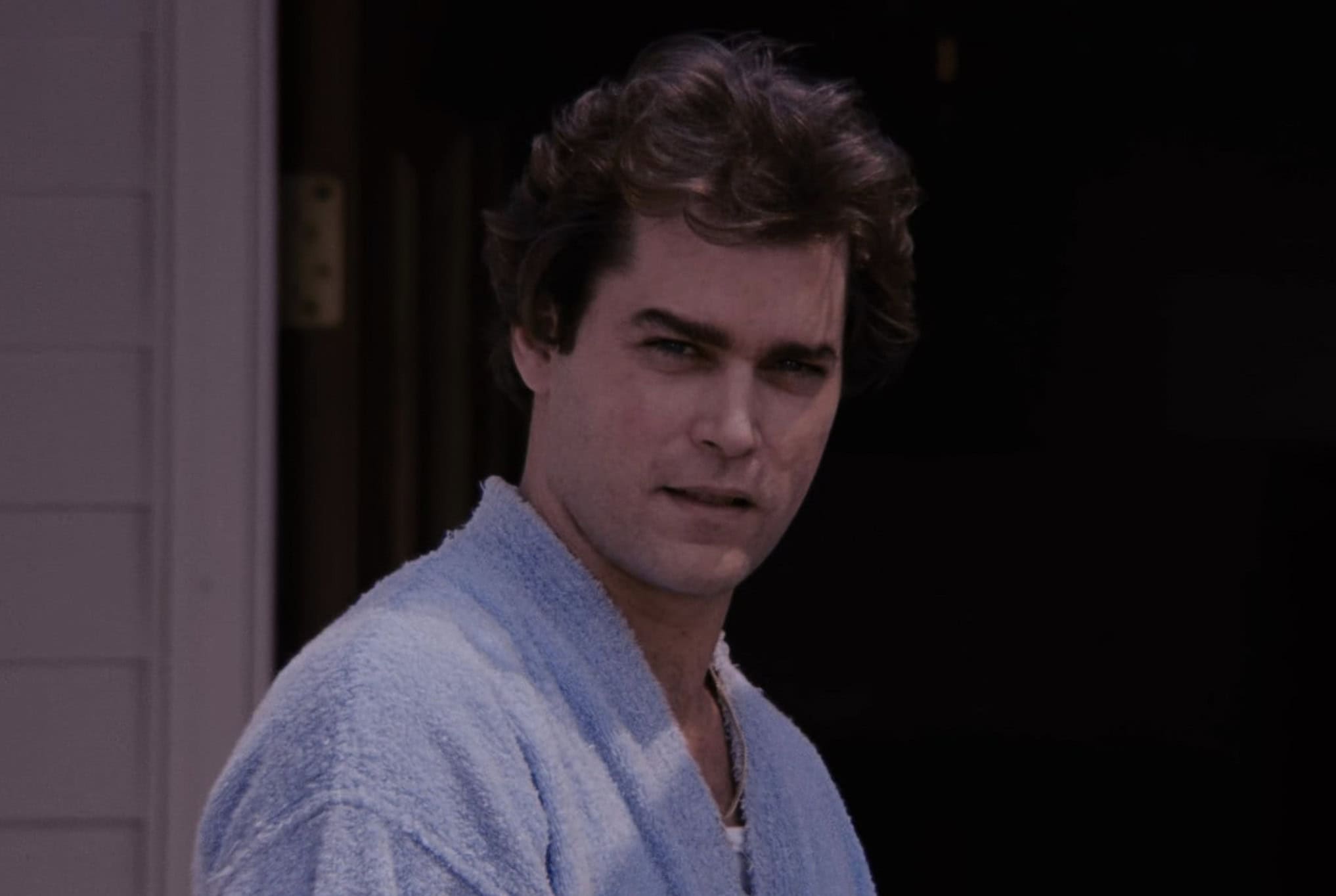
One of the greatest mafia films ever made, Martin Scorcese’s coming-of-criminal-age film “Goodfellas” features incredible moments and equally impressive speeches. The film follows the life of Henry Hill, a real-life gangster, as he earns the respect of his neighborhood mafia crew, joins their ranks, and finds riches and tragedy in the process. There is one extended monologue at the movie’s commencement, however, that provides a simple but stunning look into the mafioso mindset.
The first lines of the film “As far back as I can remember, I always wanted to be a gangster,” herald a stunning, seductive look at the criminal mindset. In the speech, Hill details the seductive disregard the gangsters show for normal society and the respect and fear they earn in the process. It’s an unabashed, alluring depiction of how a life lived on the margins can pull in even the most normal of people. Though Hill provides other monologues in the film about how even the most violent actions can become routine, nothing tops this simple but effective introduction to the criminal lifestyle.
Do the Right Thing (1989)
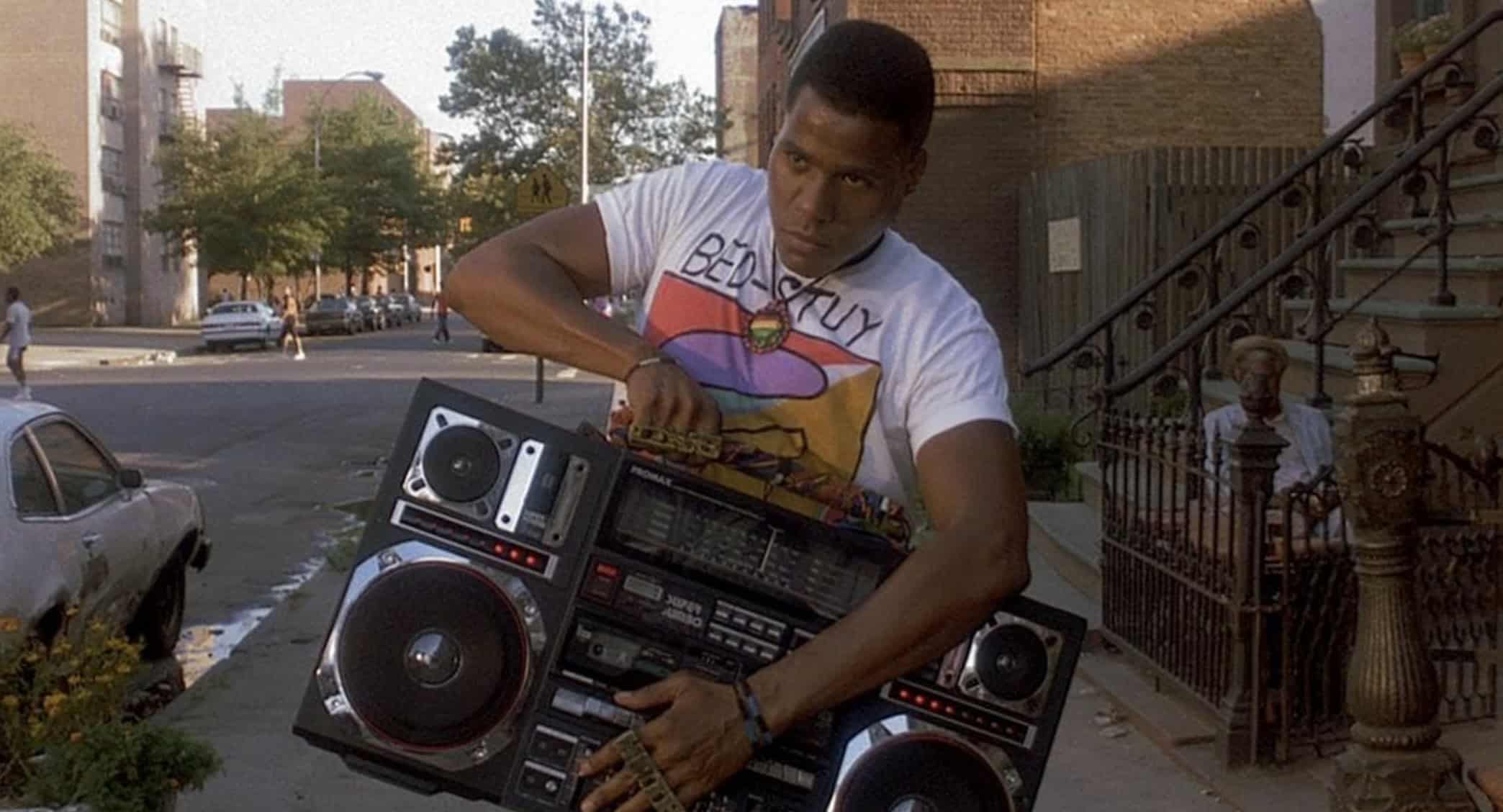
Another one of the greatest speeches in movie history comes at the start of Spike Lee’s chaotic, heartbreaking meditation on racial relations, “Do the Right Thing.” It’s a blistering hot summer in New York City, and everyone is at each other’s throats. A small conflict at a pizza parlor, spirals out of control, leading to a tense, violent, and tragic confrontation between blacks and whites.
The speech at the film’s start delivered by the neighborhood character Radio Raheem, however, provides foreshadowing to the conflicts that lay ahead. Donning two chunky brass knuckles saying LOVE and HATE, Raheem details the eternal struggle between the two forces. Furthermore, using simple terms, Raheem illustrates the theme of the movie and the divisive conflict that sets the neighborhood ablaze. As Raheem says, “Let me tell you the story of Right Hand, Left Hand. It’s a tale of good and evil. Hate: It was with this hand that Cain iced his brother. Love: These five fingers, they go straight to the soul of man. The right hand: The hand of love. The story of life is this: Static.”
A Few Good Men (1992)
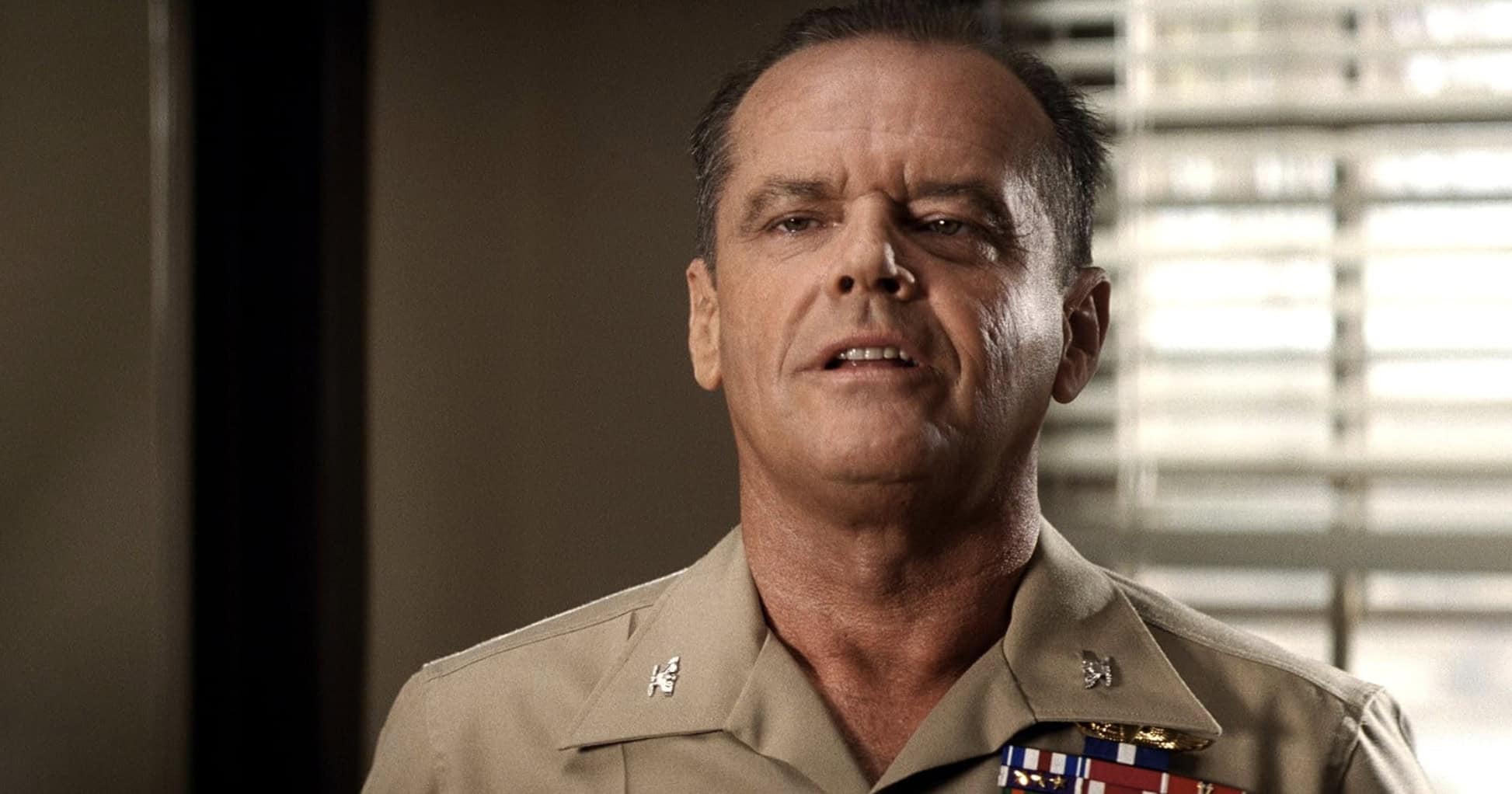
No doubt, another one of the greatest speeches in movie history comes from the military-court drama “A Few Good Men.” In the film, military lawyer Lt. Daniel Kaffee defends two Marines charged with the murder of a fellow soldier at Guantanamo Bay in Cuba. After learning that the soldiers were likely following orders from their commanding officer, he calls Col. Nathan R. Jessep to the stand in hopes of uncovering a conspiracy.
Instead, Col. Nathan R. Jessep (played wonderfully by Jack Nicholson) lays into Kaffee, detailing what it takes to act in his position, and the ugly truths that lay at the heart of any military mechanism. Besides delivering one of the most iconic lines in movie history (“You can’t handle the truth!”), the speech suggests that Kaffee’s pursuit comes from immature and misguided idealism. Jessep’s impassioned, fiery speech illustrates that the men who guard the walls of civilization are not the type of men lauded for their goodness. Instead, he explains, convincingly, that the pursuit of the greater good requires unpleasant realities. (For more impassioned dialogue, discover the most stirring speeches delivered on the silver screen.)